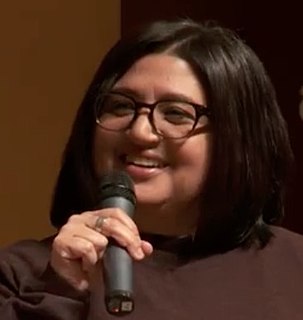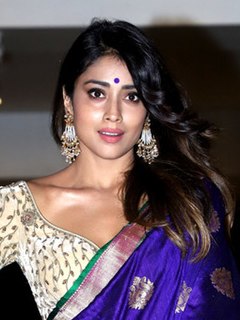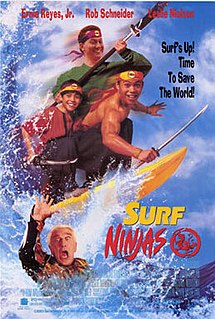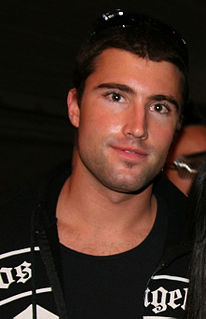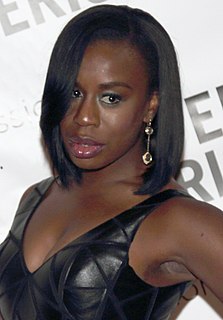A Quote by Nahnatchka Khan
You don't have to be just one thing. I think that applies to women in front of and behind the camera.
Related Quotes
Katherine Johnson never complained, it just was what it was. She just said, "I just wanted to go to work and do my numbers." And she stopped right there. I think about that as a Black woman in Hollywood when I'm asked about diversity. I hate when people say diversity because the first thing you jump to is Black and white. When you talk about diversity, you're talking about women being hired in front of and behind the camera. You are talking about people with disabilities, the LGBTQ community...so I hate when people think about diversity.
I'm always going to hear people make that connection and I've just accepted it. It's alright. I'm just happy that I get to do my own thing now. I learned a lot from the show [the Voice] as far as being in the TV world and being in front of the camera, which is really great because I'm not as nervous in front of the camera as I was before.
We have African-Americans and black people getting behind the scenes more and more, we get true black images in television and film...because we have black people behind them. They can tell stories from those points of view and bring to life those characters who have yet to be shown. As long as we have people behind the camera just as much as in front of the camera doing the work, then we'll always be good.
